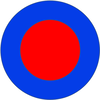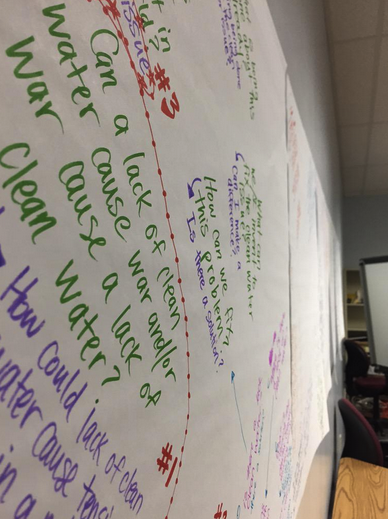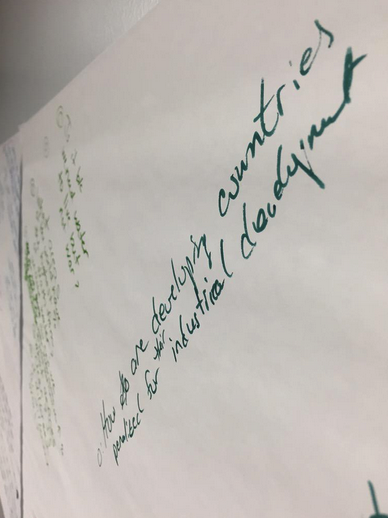|
MARK YOUR CALENDARS - Final Session - May 15, 2015 “What is causing the lack of clean water?” “Do other scarce resources cause war, beside the lack of clean water?” “Can a lack of clean water cause war and/or war cause a lack of clean water?” “How are developing countries penalized for their industrial development?” The Question Formulation Technique (QFT) was used to generate these, and about a hundred more, provocative inquiry questions at the most recent Educating STEM session. The professional development series was designed to explore the pedagogical core of STEM education. Participants explored the role of inquiry in STEM using the QFT as one approach for building a classroom appreciation of asking questions. The fast paced QFT strategy, developed by Dan Rothstein and Luz Santana, codirectors of the Right Question Institute, was designed for use in any classroom and to promote and build a culture of learning that is centered in inquiry, where students and teachers are always asking questions, really good questions, that might spark interest, attachment, and devotion to the answer. Hundreds of questions are brainstormed in a single application of the QFT with an understanding that not all questions will be answered or explored, rather it is implemented to teach students to ask provocative questions that could be used in inquiries while learning. The QFT, developed by the Right Question Institute and central to the book, Make Just One Change: Teach Students to Ask Their Own Questions, is a teacher led technique that requires all students to respond to a provocative statement, or question focus, by stating questions that come to mind as the question focus is presented. Participants at the Educating STEM series learned the technique and developed the questions above by responding to this question focus, “Lack of clean water is responsible for more deaths in the world than war.” Participants worked in groups to generate as many questions related to this question focus as possible. They depended mostly on their own curiosity as they created questions on large chart paper, holding off on answering and judging any question that was written. Next, in order to generate even more questions, participants worked to rewrite existing questions. They did this by rewriting closed questions as open questions and vice versa. For example, using the question focus above, the following closed question was generated, “Where in the world is water scarce enough to cause a war?” Answers to this closed question might include an identifiable list of places in the world where water is very scarce. Participants then worked together to convert their closed questions into open questions. For example, the closed question above was rewritten to ask, “Could water ever become so scarce in the U.S. that it could cause Civil War?” The QFT is used to generate as many questions as possible, and to promote a classroom culture shift around questioning and inquiry. After asking so many questions, the students and teachers then work together to prioritize their questions and select a few to answer during an upcoming unit of study, or to preface a research project, or just practice asking really intriguing, provocative questions. Question Focus: “The (Question Focus) technique helps students learn how to produce their own questions, improve them, and strategize on how to use them.” With enough practice, how could the QFT help me build a culture of inquiry in my classroom? Is the QFT simple to implement? Does the QFT take the pressure off me, as the teacher, to come up with provocative questions that my students will actually care about? Is building a culture of inquiry important to me? By: Tim Cox, CA BOCES
Comments are closed.
|
Follow us on
|



